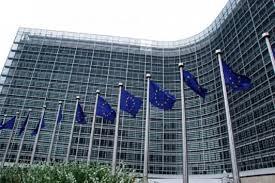 Faced with increasing costs of ingredients and food, the European Commission is reassessing a long-standing approach disfavoring biotechnology and genetically modified (GM) crops. A recent study conducted by the European Union disclosed that restrictive legislation effectively preventing the use of GM crops should be reevaluated. In a radical departure from two-decade opposition, the Commission has concluded that anti-GM legislation passed in 2001 has been without benefit.
Faced with increasing costs of ingredients and food, the European Commission is reassessing a long-standing approach disfavoring biotechnology and genetically modified (GM) crops. A recent study conducted by the European Union disclosed that restrictive legislation effectively preventing the use of GM crops should be reevaluated. In a radical departure from two-decade opposition, the Commission has concluded that anti-GM legislation passed in 2001 has been without benefit.
Sustainability is now the catch word among strategists and decision makers and has taken precedence over unsubstantiated philosophical opposition to GM. The EU Commissioner for Health, Stella Kyriakides, recently promoted GM as a means to achieve greater sustainability in agriculture. The Commissioner did however note that consumer safety and the environment are important considerations in amending existing l egislation. Supporters of GM technology can point to over two decades of improved crop yields, reduced water use, beneficial traits, insect and pest resistance all achieved without any compromise in food safety.
egislation. Supporters of GM technology can point to over two decades of improved crop yields, reduced water use, beneficial traits, insect and pest resistance all achieved without any compromise in food safety.
The volte face by the European Commission has initiated an outpouring of condemnation by organizations such as Friends of the Earth and kindred organizations that have opposed GM by publicizing false claims and coercing legislators. A spokesperson for the organization noted that permitting GM crops in Europe would contravene the “precautionary principle”. This ill defined concept has been used to block adoption of GM technology despite successful adoption in the U.S. for corn, soybeans and also for cotton. Numerous other GM crops have been developed such as rice and bananas with high levels of Vitamin A that would benefit consumers in developing nations. The precautionary principle has provided administrators with cover to justify inaction over the safety of GM crops.
 We cannot expect that the EU will adopt GM technology over the short term. The acknowledgement that GM contributes to sustainability and will be instrumental in feeding burgeoning populations is a first step in a process of reversing decades of misinformation, suspicion and unjustified concern. The immediate challenge will be how to assure consumers that GM products are safe and that advantages accrue to society from planting GM crops. We must progress from the stage of major biotech companies telling consumers “our products are safe, so no objections, just eat up” to demonstrating benefits to all stakeholders. Regrettably opponents of GM have had two decades to poison the well. It may emerge that the convergence of a new respect for scientists and their credibility over control of COVID and the realization that global warming is accelerating will allow for a reevaluation of GM technology at both consumer and political levels.
We cannot expect that the EU will adopt GM technology over the short term. The acknowledgement that GM contributes to sustainability and will be instrumental in feeding burgeoning populations is a first step in a process of reversing decades of misinformation, suspicion and unjustified concern. The immediate challenge will be how to assure consumers that GM products are safe and that advantages accrue to society from planting GM crops. We must progress from the stage of major biotech companies telling consumers “our products are safe, so no objections, just eat up” to demonstrating benefits to all stakeholders. Regrettably opponents of GM have had two decades to poison the well. It may emerge that the convergence of a new respect for scientists and their credibility over control of COVID and the realization that global warming is accelerating will allow for a reevaluation of GM technology at both consumer and political levels.